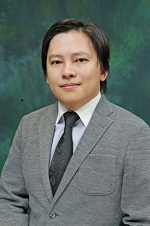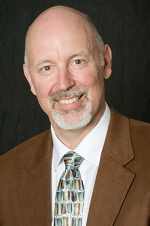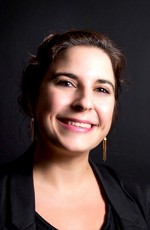Approaches for Myopia Control Based on Peripheral Retinal Contrast
Hosted By: Vision Technical Group
27 September 2022 10:00 - 11:30
Eastern Time (US & Canada) (UTC -05:00)Myopia is the most common ocular disorder worldwide and its incidence is increasing rapidly. In many East Asian countries, the condition already affects >80% of high school graduates, representing a major economic and social burden.
Currently, two contradictory approaches of myopia control based on peripheral contrast are being employed. The first strategy is to increase peripheral contrast by imposing add-power (e.g. with multifocal contact lenses or ortho-keratology), while the second strategy is to reduce peripheral contrast (e.g. with scatter-inducing spectacles).
The goal of this panel discussion is to shed some light on this apparent conflict. Our panelists will include:
Dennis Tse, Hong Kong Polytechnic University
 Dr. Dennis Yan-yin Tse obtained his BSc in Optometry and Ph.D. degrees from The Hong Kong Polytechnic University (PolyU). His early research focused on the modulation of refractive development by optical defocus in animal models. The basic scientific discoveries were later translated into clinical applications in the form of contact lenses and eyeglasses that effectively control myopia progression in children. Dr. Tse received postdoctoral training at the University of Newcastle, Australia, and Baylor College of Medicine, US. He returned to his alma mater in late 2014 and is currently an Associate Professor in the School of Optometry. Dr. Tse’s current research interests include the mechanism and treatment of myopia, ophthalmic lens design, head-mount display technology, retinal neuroscience, and the role of autophagy and oxidation in retinal degenerations. Dr. Tse was named the 2012 Loris and David Rich Scholar by the International Retinal Research Foundation for his research on the pathogenesis of glaucoma. He was awarded a Grand Prize and Gold Medal with Jury's Commendation at the 39th International Exhibition of Inventions of Geneva in 2011, and a Faculty Award in Research and Scholarly Activities (Team) in 2020 for his research on myopia. His research team was also awarded the PolyU President’s Award for Outstanding Achievement 2021 (Knowledge Transfer). He was also an awardee of the Endeavour Cheung Kong Research Fellowship and the Sir Edward Youde Memorial Fellowships in his earlier career.
Dr. Dennis Yan-yin Tse obtained his BSc in Optometry and Ph.D. degrees from The Hong Kong Polytechnic University (PolyU). His early research focused on the modulation of refractive development by optical defocus in animal models. The basic scientific discoveries were later translated into clinical applications in the form of contact lenses and eyeglasses that effectively control myopia progression in children. Dr. Tse received postdoctoral training at the University of Newcastle, Australia, and Baylor College of Medicine, US. He returned to his alma mater in late 2014 and is currently an Associate Professor in the School of Optometry. Dr. Tse’s current research interests include the mechanism and treatment of myopia, ophthalmic lens design, head-mount display technology, retinal neuroscience, and the role of autophagy and oxidation in retinal degenerations. Dr. Tse was named the 2012 Loris and David Rich Scholar by the International Retinal Research Foundation for his research on the pathogenesis of glaucoma. He was awarded a Grand Prize and Gold Medal with Jury's Commendation at the 39th International Exhibition of Inventions of Geneva in 2011, and a Faculty Award in Research and Scholarly Activities (Team) in 2020 for his research on myopia. His research team was also awarded the PolyU President’s Award for Outstanding Achievement 2021 (Knowledge Transfer). He was also an awardee of the Endeavour Cheung Kong Research Fellowship and the Sir Edward Youde Memorial Fellowships in his earlier career.
Mark Bullimore, University of Houston
 Professor Bullimore is an internationally renowned scientist, speaker, and educator based in Boulder, Colorado. He received his Optometry degree and Ph.D. in Vision Science from Aston University in Birmingham, England. He spent most of his career at the Ohio State University and the University of California at Berkeley and is now an Adjunct Professor at the University of Houston. He is the former Editor of Optometry and Vision Science. His expertise in myopia, contact lenses, low vision, presbyopia, and refractive surgery means that he is a consultant for a number of ophthalmic, surgical, and pharmaceutical companies. This work has resulted in the approval of, among others, Paragon CRT, Alcon’s iLux, and CooperVision’s MiSight lens. He has co-authored over 100 peer-reviewed scientific articles including several modern classics in the field of myopia control.
Professor Bullimore is an internationally renowned scientist, speaker, and educator based in Boulder, Colorado. He received his Optometry degree and Ph.D. in Vision Science from Aston University in Birmingham, England. He spent most of his career at the Ohio State University and the University of California at Berkeley and is now an Adjunct Professor at the University of Houston. He is the former Editor of Optometry and Vision Science. His expertise in myopia, contact lenses, low vision, presbyopia, and refractive surgery means that he is a consultant for a number of ophthalmic, surgical, and pharmaceutical companies. This work has resulted in the approval of, among others, Paragon CRT, Alcon’s iLux, and CooperVision’s MiSight lens. He has co-authored over 100 peer-reviewed scientific articles including several modern classics in the field of myopia control.
Alexandra Benavente-Perez, SUNY College of Optometry
 Alexandra Benavente is an Associate Clinical Professor at the SUNY College of Optometry. She received her degree in Optometry and Optics from the College of Science and Medicine in Valladolid, Spain; MS in Investigative Ophthalmology and Vision Science from the University of Manchester, UK; and Ph.D. in Vision Science from Aston University, Birmingham, UK. She is the Principal Investigator of her research lab, focused on identifying the mechanisms that lead to myopia and associated blinding consequences. She has been a part of the clinical research effort at the college through the Clinical Vision Research Center since its creation in 2013, where she has been a Principal Investigator in a multi-center research study and sub-Investigator in more than 20 clinical studies. Sandra has served as Chair of the Association for Research in Vision and Ophthalmology (ARVO) Annual Meeting Program Committee (Anatomy section) and is an appointed member of the Scientific Committees of the American Academy of Optometry, and the International Myopia Conference. She has received the Josh Wallman Memorial Award/Zeiss Young Scientist Award in Myopia Research at the International Myopia Conference, and the American Academy of Optometry Professional Career Development Award.
Alexandra Benavente is an Associate Clinical Professor at the SUNY College of Optometry. She received her degree in Optometry and Optics from the College of Science and Medicine in Valladolid, Spain; MS in Investigative Ophthalmology and Vision Science from the University of Manchester, UK; and Ph.D. in Vision Science from Aston University, Birmingham, UK. She is the Principal Investigator of her research lab, focused on identifying the mechanisms that lead to myopia and associated blinding consequences. She has been a part of the clinical research effort at the college through the Clinical Vision Research Center since its creation in 2013, where she has been a Principal Investigator in a multi-center research study and sub-Investigator in more than 20 clinical studies. Sandra has served as Chair of the Association for Research in Vision and Ophthalmology (ARVO) Annual Meeting Program Committee (Anatomy section) and is an appointed member of the Scientific Committees of the American Academy of Optometry, and the International Myopia Conference. She has received the Josh Wallman Memorial Award/Zeiss Young Scientist Award in Myopia Research at the International Myopia Conference, and the American Academy of Optometry Professional Career Development Award.
Matt Jaskulski, Indiana University
 Dr. Matt Jaskulski works as an optical research software developer at Indiana University Clinical Optics Research Lab. He works on numerical modeling of human eyes wearing novel optical corrections. He obtained his Ph.D. in physiological optics and aging of the visual system from the University of Murcia. He also holds an M.Sc. Degree from the Technical University of Wroclaw (Poland) and two engineering degrees in Optoelectronics and Biomedical Engineering. Matt is a co-founder and CEO of vision.app (we care for your eyes). Matt’s research interests include retinal image simulations (computer simulations of how a person sees), analysis of optical aberrations of the human eye, and understanding the pandemic of myopia in children. To these ends, he employs programming in Matlab and Android.
Dr. Matt Jaskulski works as an optical research software developer at Indiana University Clinical Optics Research Lab. He works on numerical modeling of human eyes wearing novel optical corrections. He obtained his Ph.D. in physiological optics and aging of the visual system from the University of Murcia. He also holds an M.Sc. Degree from the Technical University of Wroclaw (Poland) and two engineering degrees in Optoelectronics and Biomedical Engineering. Matt is a co-founder and CEO of vision.app (we care for your eyes). Matt’s research interests include retinal image simulations (computer simulations of how a person sees), analysis of optical aberrations of the human eye, and understanding the pandemic of myopia in children. To these ends, he employs programming in Matlab and Android.
